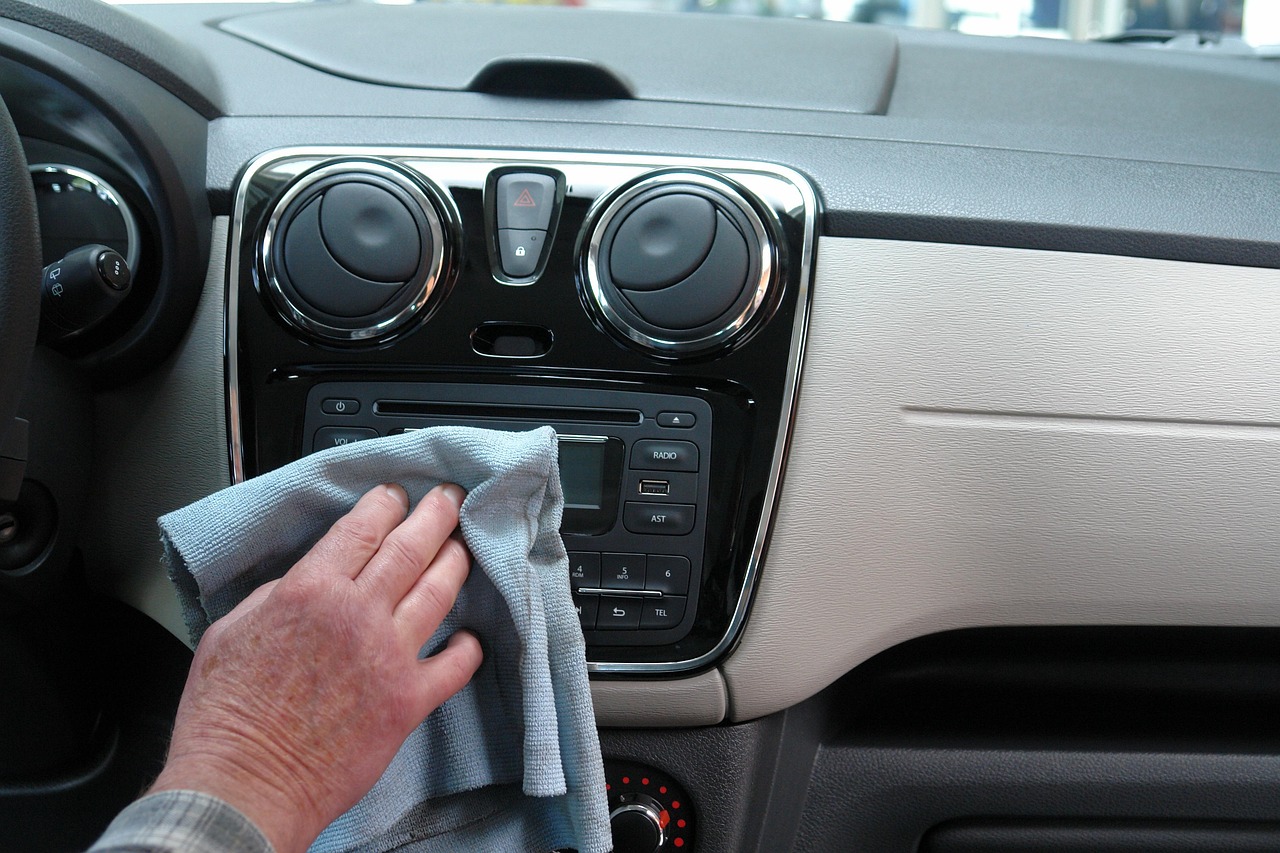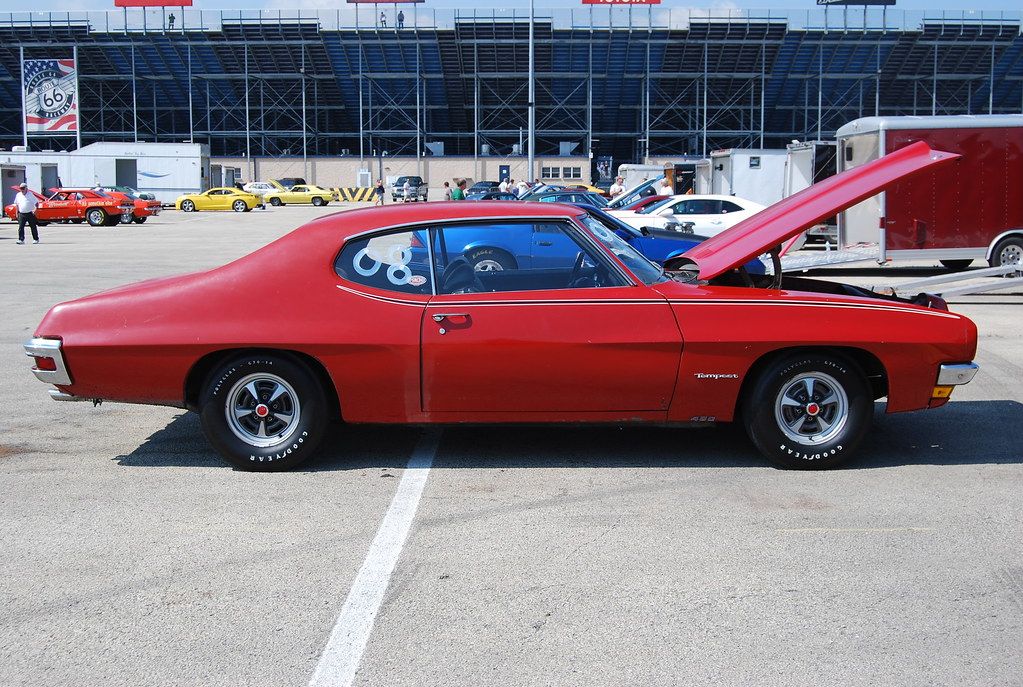Shopping for a used car is a significant financial decision, one that promises both excitement and potential pitfalls. When done right, finding a reliable pre-owned vehicle can provide years of dependable transportation, allowing you to budget confidently for regular maintenance and enjoy the open road. However, making an uninformed choice can quickly turn your dream car into a financial nightmare, leading to unexpected repairs or even the need to replace it sooner than anticipated.
While car dealerships are often perceived as the go-to destination for vehicle purchases, offering a sense of security and handling much of the process, it’s crucial to peel back the layers and understand the full picture. Many seasoned buyers and even industry experts advocate for exploring alternatives, citing a range of compelling reasons to bypass the traditional dealership route for used cars. These aren’t just minor inconveniences; they are fundamental issues that can significantly impact your wallet and your peace of mind.
This in-depth guide will equip you with the knowledge to navigate the used car market more effectively. We’ll expose the core challenges associated with dealership purchases, from the inflated prices you might pay and the backend extras that can sneak into your total cost, to the less-than-transparent practices regarding vehicle history and the high-pressure sales tactics that can cloud your judgment. Understanding these factors is the first step toward making a truly informed decision and empowering yourself to find the best possible deal.
1. **Higher Prices**
When you decide to purchase a used car from a dealership, you are often paying for much more than the vehicle’s intrinsic value. Dealerships operate with substantial overhead costs that are inherently baked into their pricing structure. These expenses include everything from the salaries and commissions of sales staff to the ongoing maintenance of their physical facilities, extensive advertising campaigns, and various operational expenditures.
To ensure profitability, dealerships must mark up the prices of their used cars to cover these significant overheads. This markup can be quite substantial, frequently resulting in you paying a price that exceeds the vehicle’s true fair market value. It’s a fundamental business model: the cost of doing business is passed on to the consumer.
In stark contrast, private sellers typically do not contend with these types of operational overheads. They are often selling a personal vehicle directly, meaning they don’t have commissions to pay or extensive facilities to maintain. This absence of a large overhead often allows private sellers to offer similar vehicles at more competitive, and sometimes significantly lower, prices, presenting a clear advantage for budget-conscious buyers.
Read more about: Unlocking Peak Efficiency: Engineer-Backed Strategies to Boost Your Car’s MPG by 10 Without Changing Your Route

2. **Backend Extras**
One common strategy dealerships employ to enhance their profit margins involves the aggressive promotion and sale of what are known as backend extras or add-ons. These supplementary offerings can encompass a wide array of services and products, ranging from comprehensive extended warranties and detailed maintenance plans to practical accessories like rustproofing, paint protection, or even specialized fabric protection for the interior.
While it is true that some of these services might offer a genuine, discernible value to certain buyers, a significant number of them are often either disproportionately overpriced or simply unnecessary for the average car owner. Dealerships, in their pursuit of profit, may not always fully disclose the complete costs or the precise benefits—or lack thereof—associated with these extras. This lack of transparency can lead you to spend a considerable amount of additional money without a clear understanding of the real value you are supposedly receiving.
It is imperative for buyers to approach these backend extras with a critical eye, questioning their necessity and true cost. Oftentimes, comparable services or products can be acquired independently from third-party providers for a fraction of the dealership’s asking price, further diminishing the perceived value of these add-ons when purchased directly through the dealer.
3. **Hidden Fees**
As you progress through the car-buying process at a dealership and approach the final stages of a deal, you must remain vigilant for the emergence of various hidden fees. These charges have a notorious tendency to unexpectedly inflate the total cost of your purchase, often catching buyers off guard. Such fees can include, but are not limited to, documentation fees, which cover the dealer’s paperwork; delivery charges, even if the car is already on the lot; title transfer fees; and even advertising fees, which you as the buyer are effectively subsidizing.
While it is true that a portion of these fees might be legitimate and, in some instances, mandated by local regulations, many others can be significantly inflated or entirely unnecessary. The crucial issue here is the lack of upfront transparency from dealerships regarding these charges. They often neglect to disclose these fees until the very last moment, leaving you feeling both surprised and frustrated when the final price tag is presented, significantly higher than what you initially anticipated or negotiated.
To safeguard your budget, it is essential to request a detailed breakdown of all costs and fees well in advance of signing any paperwork. Understanding every single charge is paramount to avoiding an unpleasant surprise and ensuring you are not paying for arbitrary or exorbitant administrative costs that could otherwise be avoided.
Read more about: Pebble Beach: The Tiny Enclave Where Every Drive is a Vintage Dream (And Why This Phenomenon Thrives Across America)

4. **Inaccuracies on Vehicle History Reports**
One of the most critical steps in making an informed decision when buying a used car is a thorough review of its vehicle history report. This document is meant to provide a comprehensive overview of the car’s past, including previous ownership, accident records, maintenance history, and any potential issues. It’s your window into the car’s life before you.
However, it’s a sobering reality that dealerships may not always furnish vehicle history reports that are entirely accurate or complete. In some concerning instances, they might inadvertently—or perhaps intentionally—overlook or downplay significant problems. This could include crucial details such as prior involvement in major accidents, undetected flood damage, or discrepancies in the odometer reading that suggest tampering.
Without access to truly reliable and comprehensive information, you are at a considerable disadvantage. You could unknowingly acquire a vehicle with deeply rooted, hidden problems that were not disclosed, problems that could ultimately prove to be exceedingly costly and frustrating to repair down the line. Always consider independent verification of any report.
Read more about: Beyond the Blockbuster: 15 Historical Epics That Rewrote Reality on the Big Screen

5. **Extended Warranty Scams**
Extended warranties are often marketed as a valuable safeguard, offering a sense of peace of mind by promising to cover unexpected and potentially expensive repairs once the manufacturer’s original warranty expires. However, it’s vital to recognize that dealerships frequently leverage these warranties as a significant avenue to inflate their profits.
Some dealerships are known to aggressively push expensive extended warranties that come with surprisingly limited coverage or an array of stringent terms and conditions. They might adeptly exaggerate the perceived benefits of these plans, painting a picture of comprehensive protection, while simultaneously downplaying or simply failing to highlight their numerous limitations. This imbalance can leave you with a costly add-on that falls far short of providing the extensive protection you were led to believe you were purchasing.
Before committing to any extended warranty, it is absolutely essential to meticulously review the terms and conditions. Pay close attention to what is covered, what is excluded, the deductible, and the claims process. Often, you may find that the cost versus the actual benefit is heavily skewed, and you could be better off setting aside that money for potential repairs yourself or exploring independent warranty providers.
Read more about: Unmasking the Deception: 9 Car Dealer Lies You Need to Know Before Buying Your Next Vehicle
6. **Limited Choices**
One significant drawback when sourcing a used car from a traditional dealership is the inherent limitation in the available selection. Dealerships typically maintain a finite inventory of pre-owned vehicles on their lot, which pales in comparison to the vast options presented by online marketplaces or the collective offerings of numerous private sellers. This restricted choice can become a considerable hurdle, particularly if your search is focused on a very specific make, model, trim level, or even a unique color.
This narrow range of options may compel you to compromise on certain desirable features or, worse yet, force you to settle for a car that doesn’t fully align with your preferences or needs. The feeling of having to “make do” with what’s available can lead to buyer’s remorse later on. When you’re restricted to a single dealership’s stock, your ability to find the ideal match diminishes significantly.
In contrast, casting a wider net by exploring multiple sources for used cars—such as various online platforms, individual sellers, or even car auctions—dramatically increases your chances of discovering the perfect vehicle. This broader search allows you to locate a car that precisely fits your needs, budget, and desired specifications, without the need for unnecessary compromises.
Read more about: Totally Rad and Almost Famous: 13 ’80s Stars Who Nearly Became Hollywood’s Next Big Thing

7. **Pressure Sales Tactics**
The moment you step onto a dealership lot, you are often entering an environment meticulously designed to elicit a quick purchase decision. This setting frequently involves encountering high-pressure sales tactics, which can be an overwhelming experience for many buyers. Salespeople are trained to employ a variety of persuasive techniques, often creating a sense of urgency through phrases like “limited-time offers” or suggesting that a particular car is in high demand and won’t last long on the lot.
This sustained pressure can easily become overwhelming, potentially leading to impulsive decisions that are not in your best long-term interest. You might find yourself agreeing to terms or prices that you would otherwise reject under less stressful circumstances. The goal of these tactics is to prevent you from taking the time needed to thoroughly research, compare, and deliberate your options, pushing you towards a spontaneous commitment.
To effectively counter these tactics, it’s crucial to empower yourself with knowledge and a firm resolve. Take your time, conduct thorough research beforehand, and maintain a clear, unwavering stance on your budget and desired terms. Be prepared to walk away from a deal that feels rushed or uncomfortable; remember, there are always other cars and other sellers. Your financial well-being and satisfaction are paramount, not the salesperson’s quota.
Read more about: Mercadona Uncovered: The Unseen Depths of Spain’s Supermarket Phenomenon
8. **Financing Pitfalls**
While dealerships readily offer convenient in-house financing options for used cars, it’s essential to understand that these options may not consistently provide the most competitive rates available in the market. Dealership financing often comes with interest rates that are notably higher, or it might include additional fees that are not immediately apparent, compared to what you could secure from external financial institutions like banks or credit unions.
In some strategic maneuvers, dealerships might even offer seemingly attractive lower prices on cars. However, these apparent savings on the vehicle’s sticker price can be entirely, or even more than, offset by the significantly higher financing costs accrued over the loan’s duration. What appears to be a good deal upfront can rapidly become a much more expensive endeavor when you factor in the total cost of interest.
Therefore, before committing to any financing arrangement at a dealership, it is absolutely critical to diligently compare offers from multiple lending sources. Engaging with your personal bank or local credit union to obtain pre-approval for a loan can provide you with a powerful negotiating tool and ensure that you are securing the most favorable terms possible, rather than being confined to the dealership’s potentially less advantageous options.
Read more about: Unlocking Unbeatable Value: The 14 Best Used Car Deals for Savvy Buyers, Backed by Expert Analysis and Data

9. **Lack of Transparency**
Transparency is a cornerstone of any trustworthy transaction, and when it comes to buying a used car, it’s absolutely paramount. However, some dealerships may not always operate with the candor you deserve, often holding back crucial details upfront. This can include vital information about a car’s genuine condition, its full maintenance history, or any significant issues it may have experienced in the past.
Such a lack of upfront disclosure makes it incredibly difficult for you to form a truly informed opinion about whether a specific used car is a sound investment. Without a clear and complete picture, you’re essentially making a decision in the dark, risking unexpected problems down the line. It’s not just about what they tell you, but what they omit.
To proactively protect yourself, it’s essential to become your own best advocate. Start by asking pointed, detailed questions about everything you want to know. Never hesitate to request comprehensive maintenance records for the vehicle, as these documents can reveal a wealth of information about its past care. Moreover, arranging for a professional, independent inspection by a trusted mechanic is a non-negotiable step.
This proactive approach of questioning, requesting, and inspecting is your most powerful tool. It allows you to uncover any hidden issues or red flags before you commit to the purchase, ensuring that your decision is based on facts, not just a dealership’s selective narrative. Empower yourself with information to make the smartest choice for your wallet and your peace of mind.
Read more about: Oscar Season 2025: Unpacking the Snubs That Sparked Outrage and Redefined Hollywood’s Awards Narrative
10. **Limited Return Policies**
When you’re making a significant purchase like a used car, having a safety net is invaluable. Many private sellers or even some online platforms offer generous return policies or money-back guarantees, giving you crucial time to ensure the vehicle meets your expectations. This flexibility provides a sense of security that is often missing in traditional dealership environments.
Unfortunately, dealerships typically operate with much stricter return policies for used cars. Once you’ve signed that final stack of paperwork and driven the car off their lot, your options can become severely limited. Discovering a significant problem or simply having a change of heart often leaves you with very little recourse, making the initial decision even more critical.
This makes understanding the fine print absolutely essential before you commit. You must meticulously review the dealership’s return policy and the specifics of any included warranty coverage. Knowing these details upfront will help you avoid unpleasant surprises and frustration later.
Ensure you clearly grasp what conditions, if any, allow for a return or exchange. This deep understanding is not just about avoiding immediate regrets; it’s about making sure you have a defined pathway to address issues should they arise after your purchase. Don’t let a restrictive policy leave you stranded with a vehicle you no longer want or one that’s plagued with undisclosed problems.
Read more about: From Austrian Oak to Global Statesman: An In-Depth Chronicle of Arnold Schwarzenegger’s Enduring Legacy

11. **Depreciation Concerns**
Vehicles, especially used ones, start losing value the moment they leave the lot, but the rate of depreciation can vary significantly. Used cars purchased from dealerships often face a faster rate of depreciation compared to new cars or those acquired through private sellers. This rapid decline in value directly impacts the long-term financial health of your investment.
When a dealership sells a used car, they often price it at a point that’s already close to or even above its true market depreciated value. This means that if you decide to sell or trade in that car a few years down the line, you could experience a considerably greater loss than if you had bought it through other channels. The initial purchase price might seem fair, but the future resale value can be quite sobering.
It’s imperative to consider these long-term financial implications beyond just the sticker price. A car is not just a mode of transport; it’s often a significant asset that can retain or lose value differently depending on where you source it. Understanding depreciation helps you budget more accurately for future vehicle needs and protects your equity.
By taking depreciation into account, you empower yourself to make a more holistic financial decision. Don’t just look at the immediate cost, but also assess the potential future value of the vehicle. This forward-thinking approach can save you considerable money and frustration when it comes time for your next vehicle upgrade.
Read more about: Regret with Every Tank: 12 Used Cars That Fail to Deliver Promised Reliability and Fuel Efficiency

12. **Overlooked Maintenance Issues**
While reputable dealerships usually conduct some form of basic inspection on their used cars, these checks may not always be as comprehensive as you’d hope. It’s a common scenario for dealerships to inadvertently, or even intentionally, overlook underlying maintenance issues or more complex mechanical problems that aren’t immediately obvious.
These seemingly minor or ignored issues can swiftly transform into significant, expensive headaches once you’ve taken ownership of the car. What might have seemed like a good deal initially can quickly spiral into a budget-breaking series of repairs, eroding any savings you thought you made. This is a crucial risk to mitigate.
Therefore, a thorough pre-purchase inspection by a trusted, independent mechanic is absolutely non-negotiable. This isn’t just a recommendation; it’s a critical step to identify any potential maintenance concerns that the dealership might have missed or failed to disclose. Think of it as your personal quality control.
This proactive and independent assessment can save you an immense amount of money and stress from unexpected repair costs down the road. It ensures that you are aware of the vehicle’s true condition before you commit, allowing you to negotiate for repairs or walk away from a problematic purchase with confidence. Your peace of mind is worth the extra step.
Read more about: Pebble Beach: The Tiny Enclave Where Every Drive is a Vintage Dream (And Why This Phenomenon Thrives Across America)
13. **Negotiation Challenges**
Engaging in price negotiations with a car dealership can often feel like stepping into a prolonged, high-stakes game. For many buyers, this process is not only challenging but also incredibly time-consuming, fraught with back-and-forth discussions that test patience. Dealerships, driven by their profit margins, may prove particularly resistant to negotiating on the price of a used car, especially if they perceive a strong demand or a potential for a higher markup.
This steadfast refusal to budge can leave you feeling frustrated and as though you’re hitting a brick wall, making it difficult to secure a deal that genuinely aligns with your carefully planned budget. The emotional toll of a tough negotiation can also push you towards making a decision that isn’t truly in your best financial interest.
To navigate these challenges effectively, empower yourself with solid preparation. Start by thoroughly researching the car’s current market value, understanding what comparable listings are selling for in your area. This knowledge gives you a strong baseline. Moreover, cultivate a clear willingness to walk away from any deal where the terms aren’t favorable or where you feel undue pressure. Your power lies in your ability to decline.
By staying informed and resolute, you can overcome common negotiation hurdles and secure a price that genuinely reflects the car’s worth and your financial comfort zone. Remember, the goal is not just to buy a car, but to buy the *right* car at the *right* price, on your terms. Your budget and satisfaction should always be the priority.
Read more about: Beyond the Hammer: An Insider’s Look at Chris Hemsworth’s Journey to Global Stardom

14. **Limited Warranty Coverage**
When you purchase a used car from a dealership, the warranty coverage provided can often be quite basic, offering only limited protection against specific defects or certain issues. It’s a common misconception that all warranties are created equal, but the reality is that dealership used car warranties are frequently much narrower in scope.
These warranties typically do not cover all components of the car, nor do they often provide the same extensive level of protection you would find with a manufacturer’s warranty on a brand-new vehicle. This disparity means that many potential problems could arise that fall outside the warranty’s purview, leaving you responsible for costly repairs.
It is therefore absolutely crucial to meticulously review the specific details of any warranty offered by the dealership. Don’t skim the fine print; understand precisely what is covered, what is excluded, and for how long. If the basic coverage feels insufficient for your needs, seriously consider purchasing extended coverage. This can offer a more comprehensive shield against unexpected repairs.
By being diligent in understanding and potentially supplementing your warranty, you empower yourself with enhanced protection. This proactive step helps safeguard your investment and provides greater peace of mind against the unforeseen mechanical issues that can arise with a used vehicle. Don’t settle for inadequate protection when your financial security is on the line.
Read more about: The 9 Most Underrated Cars in the Market Right Now: What Owners and Data Reveal for Thrifty Drivers

15. **Reputation and Reviews**
In today’s interconnected world, a dealership’s reputation precedes it, making thorough research an indispensable step before you even set foot on the lot. It’s essential to investigate their history and pore over customer reviews, as these can provide invaluable insights into their business practices.
Digging into online reviews and consumer reports can uncover a pattern of behavior, whether it’s poor customer service, deceptive sales tactics, or a troubling history of selling cars with undisclosed issues. These real-world experiences from other buyers offer a critical lens through which to evaluate a dealership’s trustworthiness.
Beyond online searches, leverage your personal network: ask for recommendations from trusted friends, family, or colleagues. Additionally, research the dealership’s standing with consumer protection organizations like the Better Business Bureau. These multifaceted investigations can paint a comprehensive picture of the dealer’s reliability.
Arming yourself with this reputational intelligence empowers you to make a profoundly more informed decision about where to buy your used car. It’s about choosing a partner you can trust, rather than risking your hard-earned money with a dealership that might prioritize profit over integrity. Make your choice with confidence, backed by solid research.
Read more about: Consumer Alert: 13 Essential Safeguards Against the Hidden Dangers of Buying a Car Sight Unseen Online
Navigating the used car market can feel like a labyrinth, but by understanding these critical pitfalls of dealership purchases, you’re now equipped with a powerful compass. The journey to your ideal used car doesn’t have to be dictated by the traditional showroom floor. Instead, envision a path where transparency, fair pricing, and genuine value are at the forefront. Empower yourself to explore beyond the usual suspects, leveraging every tool and insight at your disposal to secure a vehicle that truly serves your needs, without the costly compromises. Your perfect ride awaits, and it might just be found where you least expect it, freed from the chains of conventional dealership constraints.










